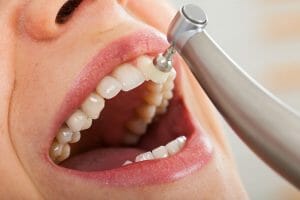Why a Tooth Extraction Should Be a Last Resort

When we go to our dentist for a routine checkup, we’re hopeful. We would like to think we did everything possible for the last few months to ensure our teeth and gums are healthy and clean.

Like with other dental offices across the country, we at O’Connor Dental Care only recommend a tooth extraction when we’ve exhausted other alternatives. Although this procedure is painless for the patient, we’ll explain why a tooth extraction should be a last resort.
What makes tooth extraction a last resort option?
We at O’Connor Dental Care consider tooth removal only when other viable dental treatment options are not possible, for several reasons.
For one, it’s permanent. Once we remove an adult tooth, it won’t grow back. You will need to have a crown, bridge, or full dental implant placed in its spot, which can be costly. If you opt to not have it replaced using a restorative technique, you may find it uncomfortable to eat and it may impact your speech.
Along with being permanent and pricy, tooth extraction is risky. If you do not consider proper aftercare, you can end up with an infection, which leads to more painful and possibly costly dental work.
If a blood clot does not properly form following the procedure, you may develop a dry socket, which is painful and prolongs healing time. Nerve damage and jaw misalignment are other risk factors.
What leads to tooth extraction?
You should never take a tooth extraction lightly. And often, it is the resulting consequence of serious trauma or decay, whether avoidable or not.
If you have an accident that causes a damaged tooth that is beyond repair, then it’s likely you will need to have that tooth removed.
If you have poor oral health, either through bad habits, genetics, or both, a tooth extraction may be in order for severely decayed teeth.
What is the tooth extraction process like during and after the procedure?
We follow the tooth extraction guidelines set out by the American Dental Association (ADA).
If you or a loved one must get a tooth extracted, here’s what you can expect:
- We will give you a local anesthetic to numb the tooth and surrounding gum area.
- We will place a gauze pack around the afflicted tooth to limit bleeding during the procedure.
- Your dentist will cut an incision in the gum, remove bone that blocks the tooth root, and remove the tooth, either whole or in pieces, depending on its size.
- You will be awake during the procedure, but the anesthetic should prevent you from feeling any pain. You will most likely only feel pressure.
- After we extract the tooth, we will again inform you on after care procedures.
- You will keep the gauze pack in your mouth for at least a half hour after the extraction.
- Your mouth will be numb for a few hours after the procedure. Eat nothing that needs chewing during this time and be careful not to bite your cheek or tongue.
- After going home, do not clean the tooth, drink through a straw, drink alcohol or use mouthwash with alcohol, smoke, or engage in strenuous activity for at least 24 hours.
- We will prescribe you painkillers to limit pain and soreness that will occur for the days following the procedure.
Are there alternatives to tooth extraction?
The first step to thwarting the need for a tooth extraction is taking preventive measures. By doing your best to brush and floss your teeth and avoid sugary food and drink, you’re already doing a lot to possibly prevent having a tooth extracted.
Here are the main alternatives to tooth extraction:
- Root canal: During this procedure, we remove the infected part of the tooth’s root pulp. This is a tooth extraction alternative if only the root is affected, and not yet the tooth.
- Identifying early periodontal disease: If you regularly attend dental checkups, your dentist will be able to spot early periodontal disease. We can immediately provide alternative remedies to heal diseased gums before it affects teeth.
- Endodontic surgery: This type of oral surgery removes infected areas of the tooth root, which may still be necessary after a root canal. Successful endodontic surgery can upend the need for tooth removal.
- Medication: In some cases, your dentist may prescribe antibiotics or over-the-counter medicines that reduce pain and inflammation. This can also potentially subvert the need for extraction.
Again, we at O’Connor Dental Care will do everything we can to avoid our patients undergoing tooth extraction. But when all else fails, it is still a common and safe procedure that will help keep your mouth healthy.
Please remember, prevention is key! Always attend your regular dental checkups so that together, we can stay on top of your oral health needs.
If you would like to set up an appointment to see Doctor Emily to discuss your dental care, contact us today.











